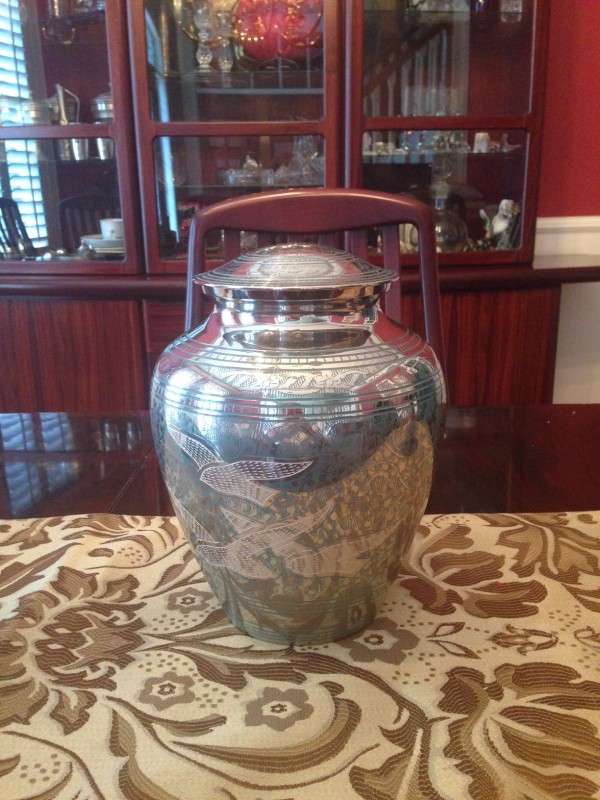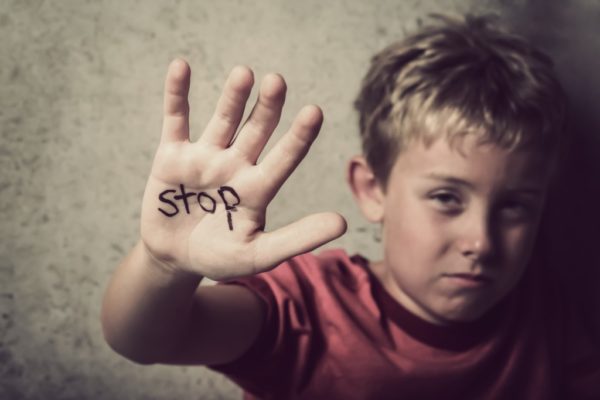As I type, I glance up at the beautiful urn in the room filled with the ashes of my father, my mother and my sister. I can’t imagine now not believing in consciousness survival and the afterlife because how can one digest the fact that a person whose life was full of joy and pain, memories and knowledge and experiences, whether “good” or “bad” can be reduced to fitting in a jar? You can’t. You can’t fit a full life in a jar. Still, my sister, Laura, chose the urn and it’s absolutely beautiful. Shout out to you, girl. Great job!
Me: Talk to me about forgiveness. How do we learn to forgive ourselves and others? First maybe you can talk to me about forgiveness in general.
(Pause)
Jamie: I think Erik would do so well in those shoes with wheels in the soles. Half the time, when I look up to find him, I’m looking at the back of his head.
A soul with wheelie soles.
Jamie: So, I’m like, ‘What are you turning on?’ Forgiveness. That one gets at him.
Erik: Humans are trained to focus on the mistake so that we can be better, but that’s like falling into a whole big fucking trap because we don’t need to be in a right or wrong situation. We don’t need to be in a good or a bad. We need to be in the part of acceptance, so pay attention to your surroundings and where you are in the Now. What’s coming? Yeah, you can prepare for it all you want, but the way that you’re going to react is not—you can’t react to something that’s in the future. You can only react to it when it comes to you. A lot of times, people think that when you forgive someone that you totally forget about it, and it’s gone. Forgiving is not forgetting. Just sign up for that one right now. You can forgive and then remember that moment of having to forgive a thousand times in one week, and you’ll think that it’s haunting you, and you’ll think that it’s horrible, but, really, what you’re brain is trying to say is, “You know, that was a mistake somehow,” not the forgiving part but why the forgiving had to happen. Well, the brain wants to figure out how it could have been corrected. What can we gain from it? How can we learn from it? What you need to teach yourself is, “Okay. Did I like that or not?” “Did I like the circumstance? No. Okay, so, I had to forgive it. Okay, I did it.” So, it’s healed. Let go of it. You have to trust yourself enough to know when or if it ever happens to you again, it’ll be part of your base reaction.
Jamie (looking at Erik for clarification): Like foundation?
Erik: Yeah. It’ll be part of who you are. It’ll be part of who you are to not react the same way as you did before because you accepted that you didn’t like it, and you’re going to make conscious choices of only doing what you like. This doesn’t give you—
Jamie (to Erik, shaking her head as if puzzled): A what? Carte Blanc? A white card?
Me: Yep. Free rein.
Jamie (laughing): I don’t know why I couldn’t’ understand that one!
Erik: It doesn’t give you free rein to do whatever the hell you want just because you like it. No! What I’m talking about is that attraction evolves. Those three things I talked about before, the compassion, the staying in the Now, and having the respect, creates that inner love and inner joy, and if you let that guide you, then you’re setting yourself up for experiences in life that will be rooted in love and that can grow to fit your needs, to what you need to learn. That doesn’t necessarily mean that you’re in for an easy ride. Love is not easy. I don’t know why you guys always think in terms of white or black. This whole shit that we’re living in is grey.
Jamie (smiling): I told him in my head, ‘Wow, you make this sound so beautiful.”
Me: I know! Woo hoo!
Jamie and I crack up.
Erik: But it is, and people are not talking in those terms. The old therapies talk about when you do things one, two, three, then you’ll be healed, and you’ll be better, that it’s black or white. It’s not! Thank god there are therapies now that are talking about grey. Life is a series of choices and management. You have to stay conscious. You can’t just give up on yourself and let it roll, cuz you’re going to end up with shit that you don’t want.
Me: So, you’re saying that grey is the new pink?
Jamie laughs.
Erik: Grey is the new orange.
Me: Okay, fine!
Jamie: He’s laughing. The TV show. Orange is the New Black?
Me: Something like that. I can’t remember. Black is the New Orange? Forget it. We can go on all day with that. Well, how do you learn—I hope you didn’t already answer this because I was distracted by having to keep my little Yorkie from eating some books, so I wasn’t totally listening.
Yeah, like that’s something new.
Jamie laughs.
Me: How do we learn to forgive ourselves and others?
Erik: I kind of touched on it but not in depth. I pretty much said that once you’ve forgiven yourself or somebody else, that means you acknowledge to yourself that you didn’t like the circumstance, and you didn’t like the outcome, and you didn’t like how you behaved. Then you can contact those persons who were in that situation with you and just say, “My humble apologies. I’ve forgiven myself. I hope you’ve forgiven me,’ or “I forgive you.” You know, it’s really a powerful instrument, and it’s needed in good communication. You’ll find that any kind of upset is based on bad communication. If anyone wants to sharpen the tools in their shed, sharpen their communication tools. I’m not saying get a better vocabulary. I’m saying be a better listener and be a better sharer in how you’re feeling and what you’re going through. That will help you deal with forgiving yourself, and then once you’ve done that, then you have to train yourself to understand that that is the past, that you’re not going to repeat it, that you’re wiser because of it, and you know the choices you would make if that situation would ever come up again.
Me: It’s all about being emotionally honest with yourself so it’s like, “Hey, I have to be honest with myself. I messed up. I need to ask for forgiveness,” and then being emotionally honest with others, too.
Erik: Yes. (Pointing at the camera) That’s my mom!
Me: Well, I learned this all from you!




